Families of Forsyth County
Atlanta History Center is uncovering and sharing the histories of the descendants of Forsyth County’s Black residents who were expelled in 1912.
As part of an initiative to continue research and bring awareness to the events of 1912, we aim to provide resources for descendants to explore and tell their family histories as conversations continue in Forsyth County and across the country on how to reconcile with the past.
The podcast 1912: The Forsyth County Expulsion and Its Aftermath tells the stories of four Black families from Forsyth County and the lasting impact of racial terror on generations of descendants.
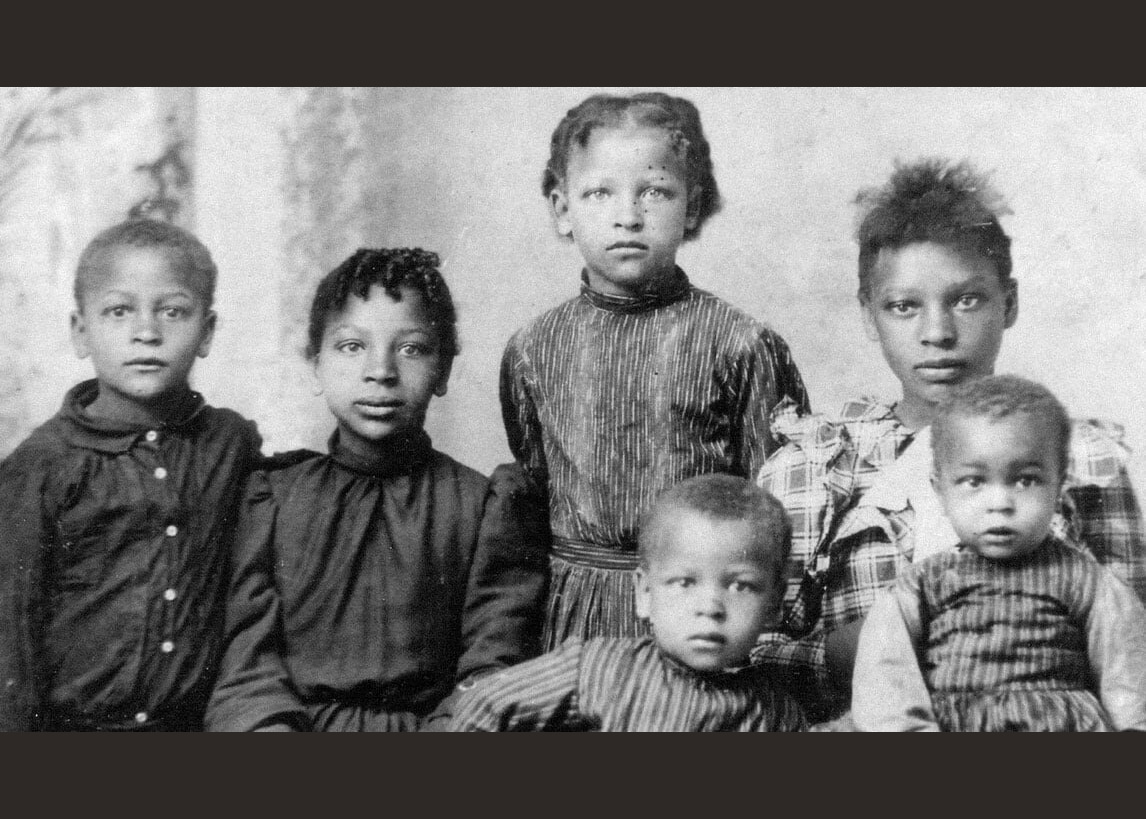
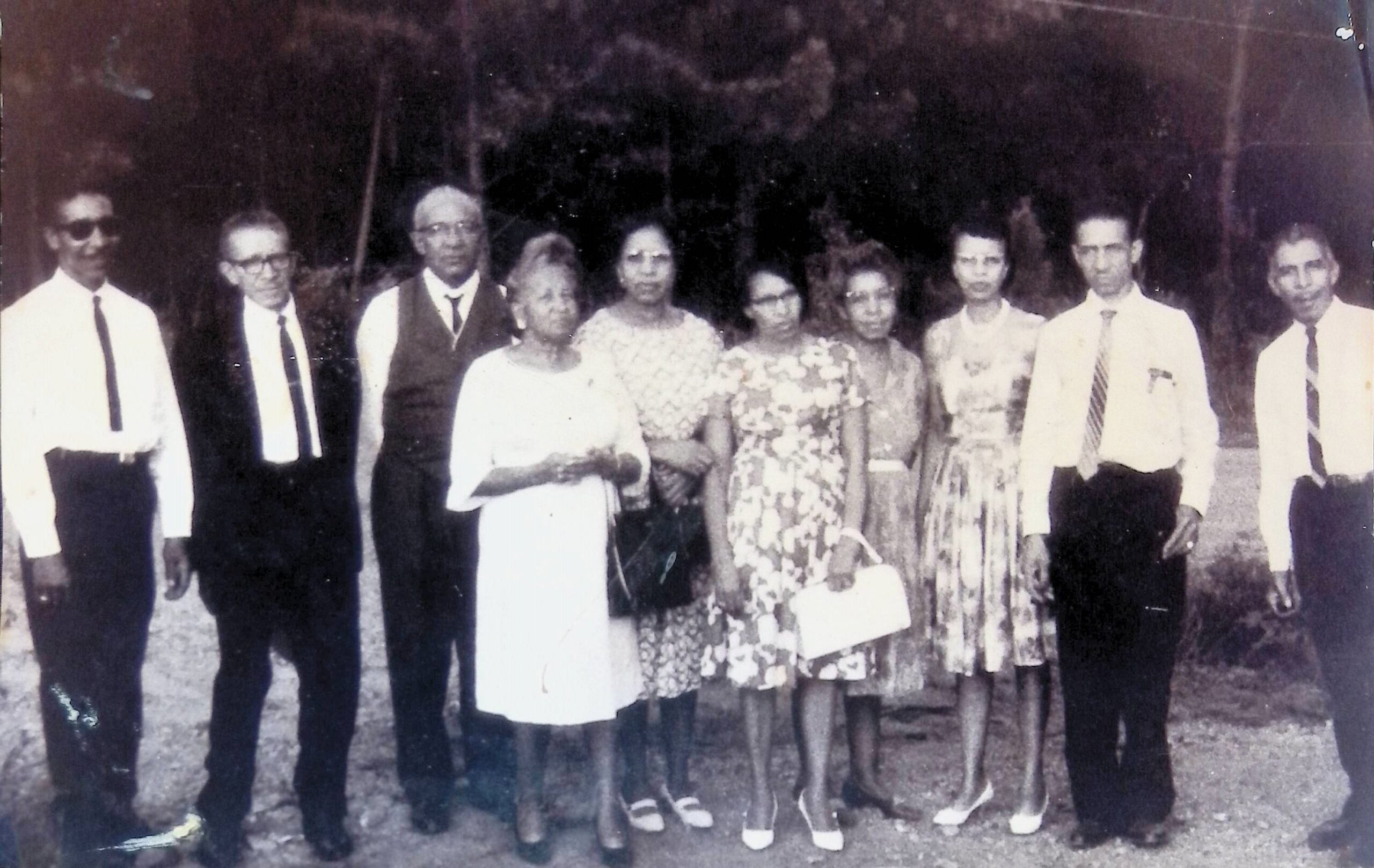
The Strickland Family
Listen to descendants of Jim Strickland:
Transcript:
Chase Evans: We can trace our lineage back to Lucy, who was born in 1812
Charlie Wiley: She was sold into slavery in South Carolina
Edith Lester: And she had Jim
Charlie Wiley: He was this moonshine maker
Mazie: That’s how he got the money to buy all that land. And when this happened in Forsyth County most of the land was confiscated or taken
Charlie Wiley: Some of the land that they owned, They didn’t actually get banished from
Mazie: So it was passed down from him to his 11 children. They sold it because some of the family members wanted their share.
Crystal Amey: When I learned about the property and being run from Forsyth, it kind of annoys me a little bit, and maybe it shouldn’t, but I’ve passed acres of land and been like, you know, where would we be had we had still had that. Land is really the key to wealth. It could have been so much different. But it’s just kind of a passing thought. It’s not anything in particular I just long for. It’s just a thought.
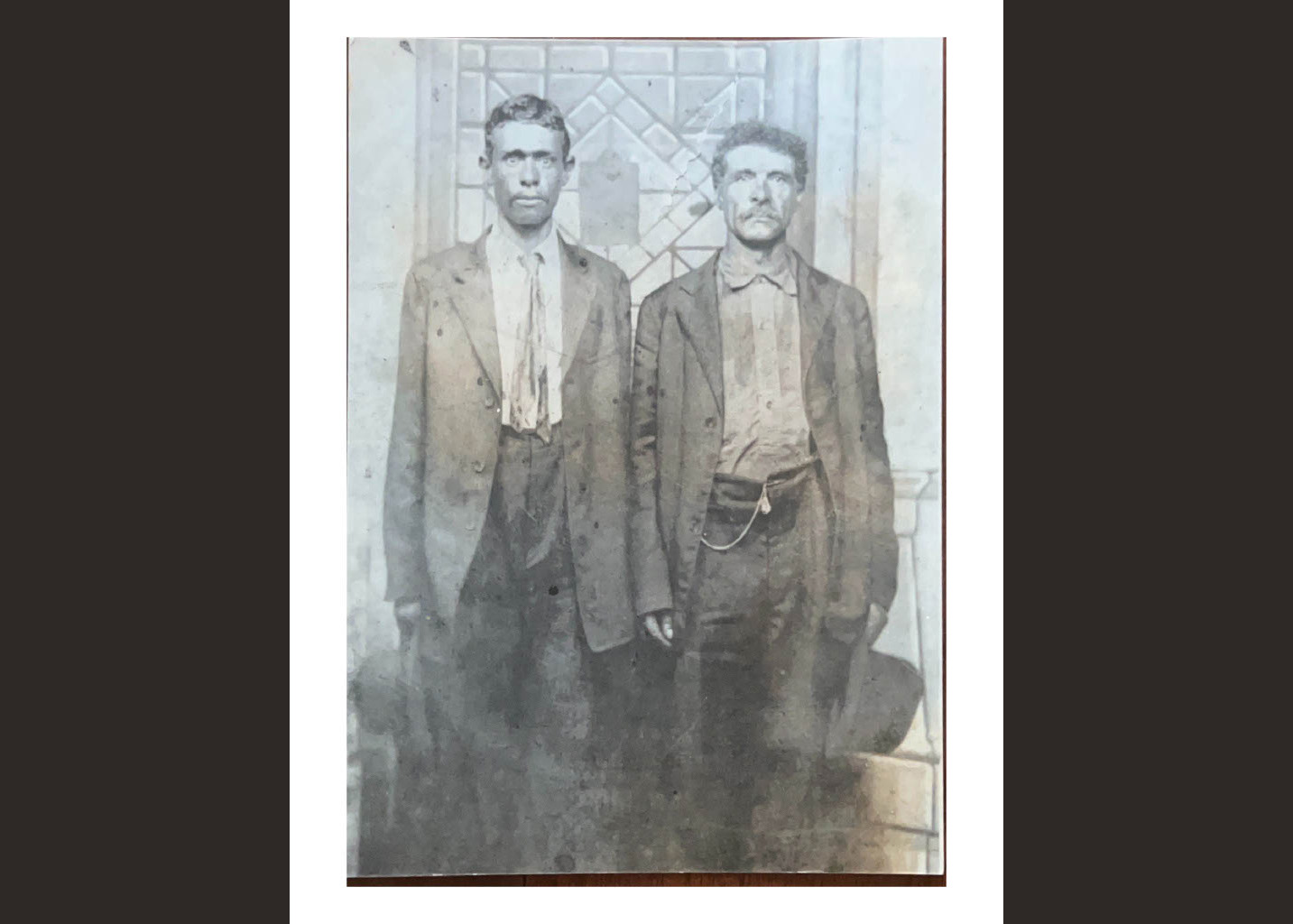
William Strickland (right) and an unknown man (left), n.d. Courtesy of Charlie Wiley, Jr.
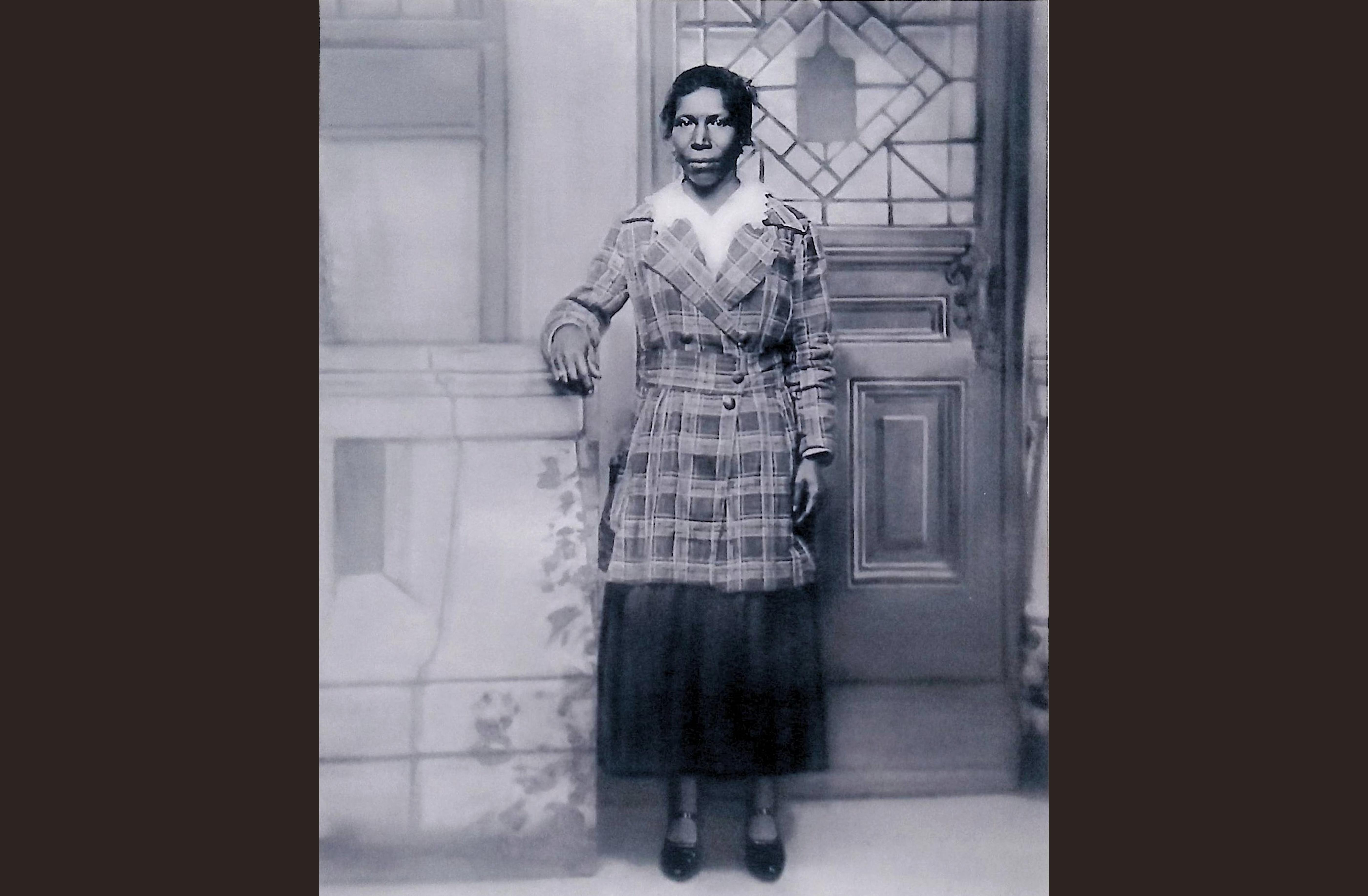
Carrie Strickland, n.d. Courtesy of Elnora Strickland
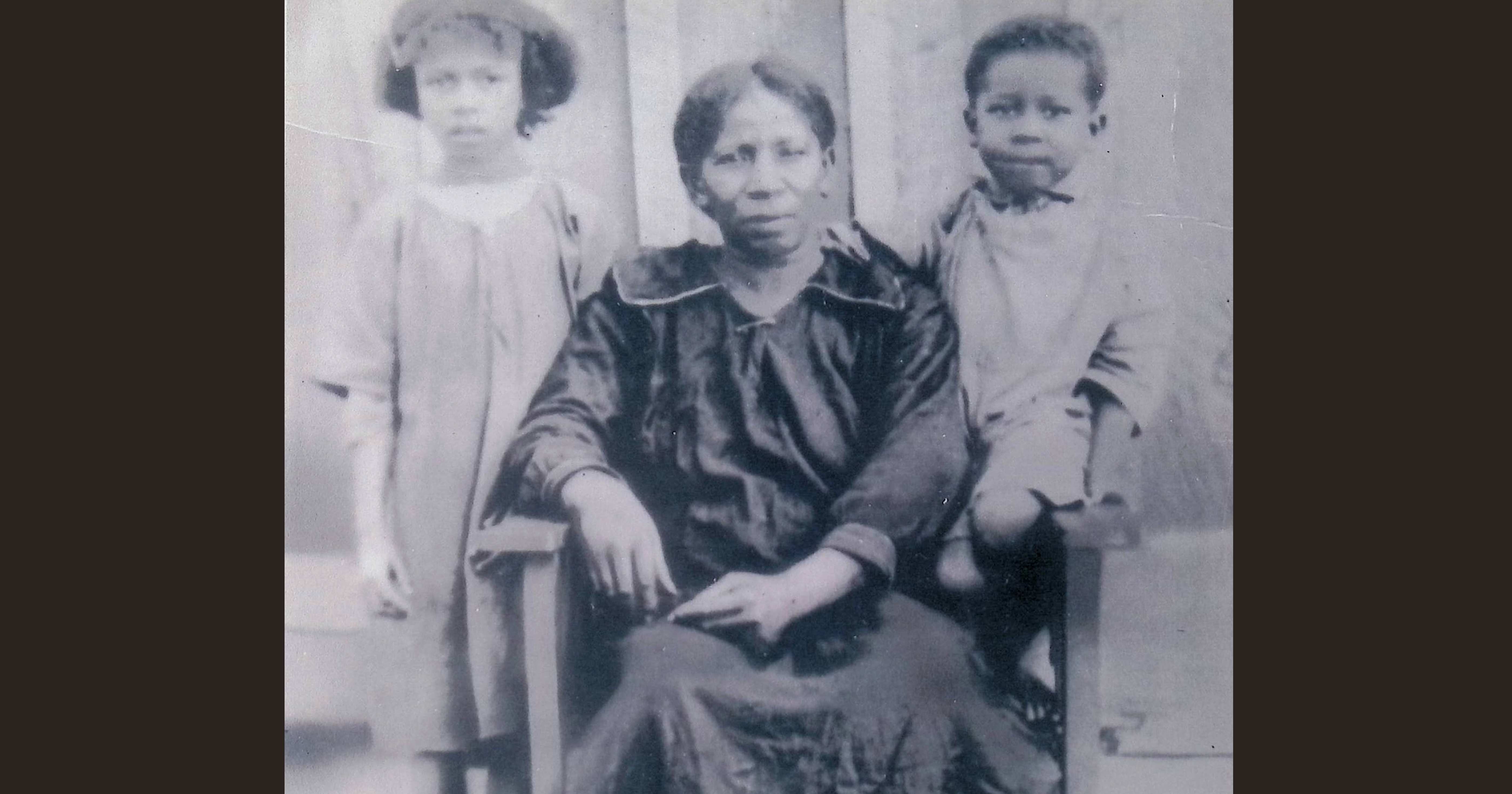
Carrie Strickland with unknown children, n.d. Courtesy of Elnora Strickland

The children of William and Carrie Strickland. William David Strickland, an infant at the time of the expulsion, on the far right. n.d. Courtesy of Betty Strickland
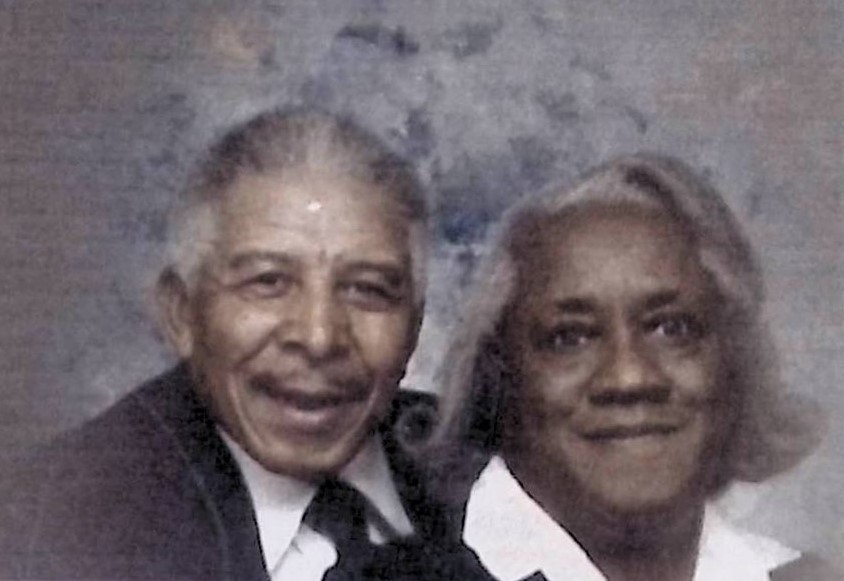
William David and Viola Strickland. William became a pastor at Pleasant Hill Church in Roswell, Georgia, n.d. Courtesy of Elnora Strickland
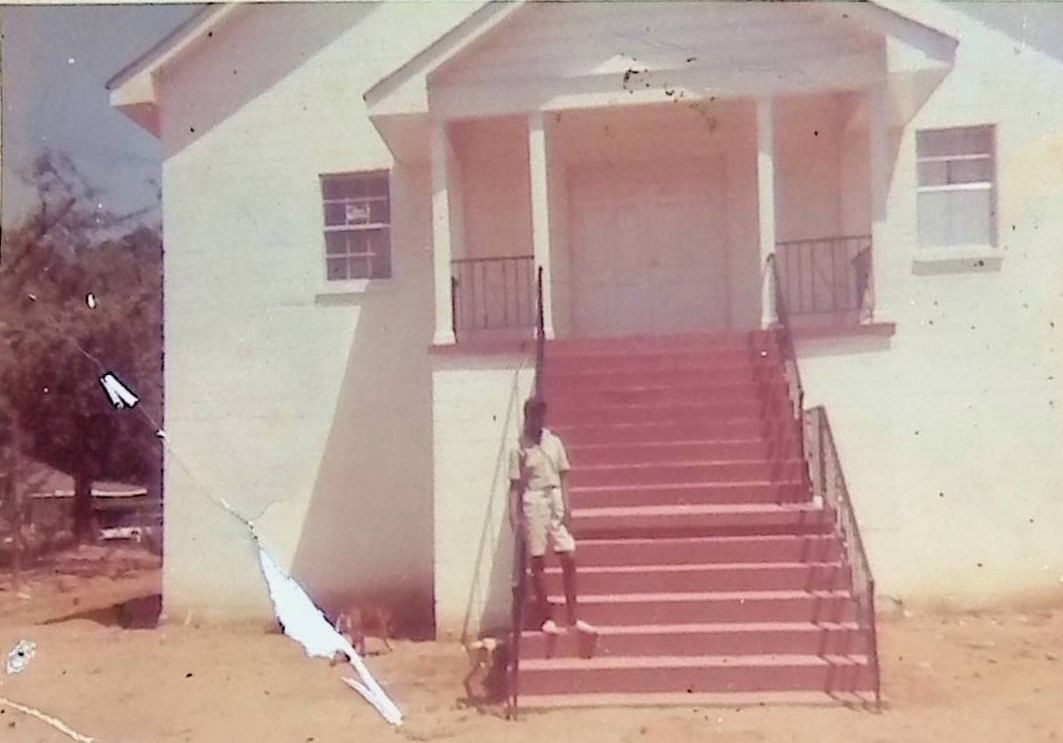
The original building of Pleasant Hill Church in Roswell, Georgia, n.d. Courtesy of Annie Ruth Manning
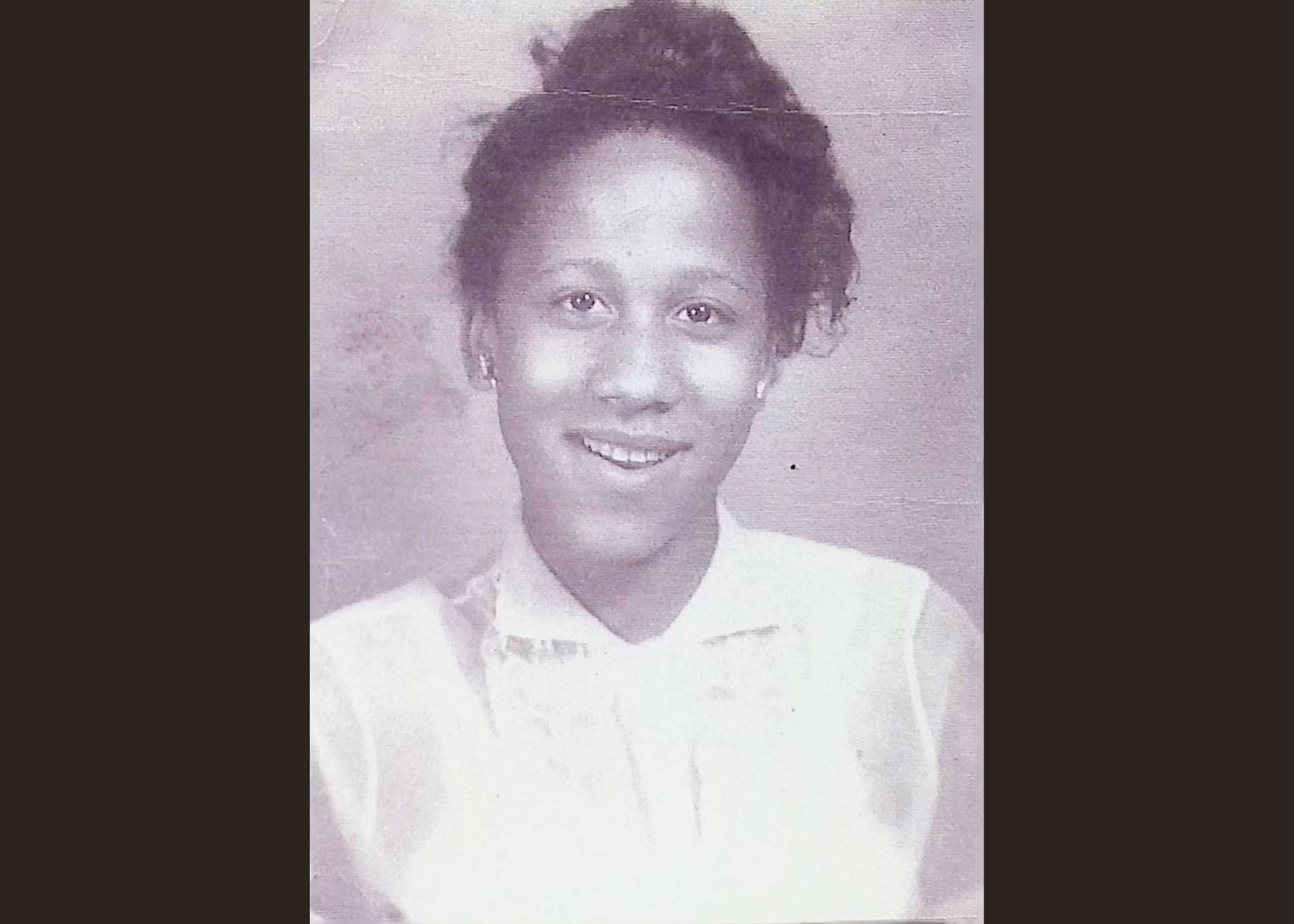
Patsy Strickland, daughter of William David and Viola Strickland, n.d. Courtesy of Elnora Strickland
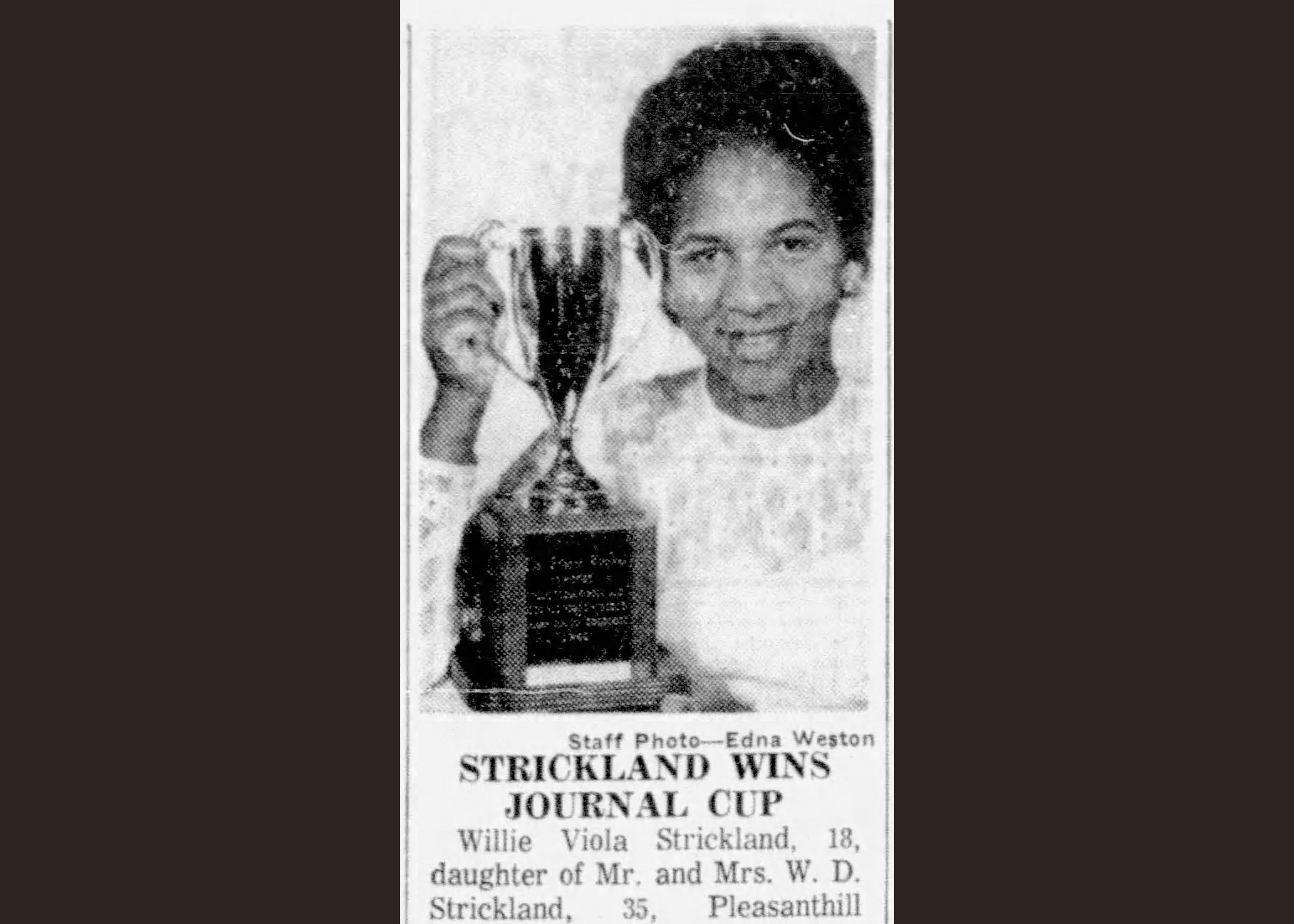
Willie Viola Strickland, Daughter of William David and Viola Strickland. She was the valedictorian of the 1962 graduating class of Bailey-Johnson High School, June 11, 1962, Atlanta Journal via Newspapers.com

Strickland Family Profile
William Strickland carried a lineage that was both profound and heartbreaking. William’s father, Jim, was known to locals as a bootlegger. Jim’s whiskey was so good that white residents shielded him from the police so that he could continue making whiskey. Jim’s mother, Lucy, had survived the brutality of enslavement, and family stories suggest that Jim was born from an act of sexual violence committed by a white man.
While William’s family history was marked by these deep hardships, little is known about his wife Carrie’s early years in Forsyth. Still, her marriage to William set their family on a path of resilience and determination.
By 1912, racial violence had reached a fever pitch in Forsyth County, and like so many other Black families, the Stricklands were forced to flee. While the exact circumstance of their escape is lost to time, family stories point to Johns Creek as their first place of refuge. The journey, though, left a trail of unanswered questions, as stories from this period remain incomplete. We do know that after their expulsion, William and Carrie, who had been landowners in Forsyth County, turned to sharecropping, which was difficult, precarious and far different from the stability they once enjoyed. In time, the family was forced to sell their Forsyth homestead since they were unable to return to the land they had once called home. When William died, white Forsythians allowed the Stricklands to bring his body back to Forsyth and be laid to rest in the family cemetery. At his funeral, a striking reflection of the racial complexities of the time occurred — some white onlookers, unaware of William’s background, mistook him for a white man.
As the Strickland children grew older, they became disillusioned with sharecropping. Seeking better opportunities, they moved across North Georgia, with some settling in Roswell and others finding new roots in Atlanta and Smyrna. Many found solace and community at Pleasant Hill Church in Roswell, which became a spiritual home for many former Forsyth residents who had been displaced by the 1912 expulsion.
Over the years, the family cemetery, which sits on the border between Fulton and Forsyth Counties, fell into disrepair. A nearby property owner even used it as a dumping ground, a painful reminder of the challenges the Strickland family faced in preserving their history. Yet, despite these challenges, the descendants of William and Carrie have worked tirelessly to restore and maintain the gravesite, though more remains to be uncovered about the branches of the family who have taken on this important work.